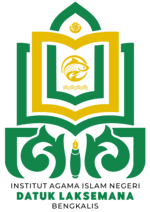Pembentukan Karakter Manusia Dalam Filsafat Pendidikan Islam
DOI:
https://doi.org/10.56633/jkp.v20i1.768Keywords:
Human, Character Education, Philosophy of Islamic EducationAbstract
The purpose of writing this article is to find out what character education is like at MSU Nashrus Sunnah and the efforts made to build it, as well as how it is related to the philosophy of Islamic education. The research method we have determined is qualitative data collection, namely observation and in-depth interviews in educational development efforts based on Islamic educational philosophy. Then the author analyzes and describes both. According to research conducted, the development of human character, especially in school learning, is very important and a boost in improving human character is collaboration between educators, students and parents. Without the collaboration of three key elements, it is impossible to create human character guided by Islamic teachings
References
Adnan, Muhammad. “Konsep Manusia Dalam Pandangan Filsafat Pendidikan Islam.” Jurnal Kependidikan 7, no. 2 (November 29, 2019): 264–73. https://doi.org/10.24090/jk.v7i2.3517.
Arfamaini, Revi. “ESENSI MANUSIA DALAM PRESPEKTF FILSAFAT PENDIDIKAN ISLAM.” JURNAL TARBIYAH 23, no. 2 (2016): 0854–2627.
Arofah, Rahmat, and Hari Cahyadi. “Studying Human Nature and Its Relation to the Islamic Education Process.” Adabiyah: Jurnal Pendidikan Islam 1, no. 1 (September 28, 2015): 29–40. https://doi.org/10.21070/ja.v1i1.162.
Choli, Ifham. “PEMBENTUKAN KARAKTER MELALUI PENDIDIKAN ISLAM.” Tahdzib Al-Akhlaq: Jurnal Pendidikan Islam 2, no. 2 (November 6, 2019): 35–52. https://doi.org/10.34005/tahdzib.v2i2.511.
Farida, Siti. “PENDIDIKAN KARAKTER DALAM PRESPEKTIF ISLAM.” KABILAH : Journal of Social Community 1, no. 1 (June 1, 2016): 198–207. https://ejournal.kopertais4.or.id/madura/index.php/kabilah/article/view/1724.
Fathorrahman, Fathorrahman. “Filsafat Pendidikan Islam Dalam Perspektif Al-Ghazali Dan Ibnu Khaldun.” Tafhim Al-’Ilmi 10, no. 2 (May 1, 2019): 108–20. https://doi.org/10.37459/tafhim.v10i2.3427.
FATTAH SANTOSO, M. ABDUL, and AZAKI KHOIRUDIN. “Tipologi Filsafat Pendidikan Islam: Kajian Konsep Manusia Dan Tujuan Pendidikan Berbasis Filsafat Islam Klasik.” Afkaruna 14, no. 1 (2018). https://doi.org/10.18196/AIIJIS.2018.0081.75-100.
Fithriani, Fithriani. “IMPLIKASI AKSIOLOGI DALAM FILSAFAT PENDIDIKAN,” 2017.
Harahap, Musaddad, and Lina Mayasari Siregar. “Konsep Pendidikan Islam Dalam Membentuk Manusia Paripurna.” Jurnal Pendidikan Agama Islam Al-Thariqah 2, no. 2 (December 31, 2017): 148–63. https://doi.org/10.25299/althariqah.2017.vol2(2).1040.
Harahap, Radinal Mukhtar. “Pembentukan Kepribadian Muslim Dalam Perspektif Filsafat Pendidikan Islam.” FIKROTUNA 6, no. 2 (December 28, 2017). https://doi.org/10.32806/jf.v6i2.3102.
haris, abdul. “Pendidikan Karakter Dalam Perspektif Islam” 9 (2017).
Hatim, Muhammad. “Problem Filsafat Pendidikan Islam: Proyeksi, Orientasi Ke Arah Filsafat Pendidikan Islam Paripurna.” EL-HIKMAH: Jurnal Kajian Dan Penelitian Pendidikan Islam 13, no. 2 (December 23, 2019): 168–82. https://doi.org/10.20414/elhikmah.v13i2.1680.
Krisnawanti, Apriliana. “KERJASAMA GURU DENGAN ORANG TUA MEMBENTUK KARAKTER DISIPLIN SISWA KELAS V SD NEGERI GEMBONGAN THE COLLABORATION OF TEACHER AND PARENTS TO ESTABLISH STUDENTS’ DISCIPLINE CHARACTER.” Jurnal Pendidikan Guru Sekolah Dasar Edisi. Vol. 18, 2016.
Mustaghfiroh, Hikmatul. “REKONSTRUKSI FILSAFAT PENDIDIKAN ISLAM (MENGEMBALIKAN TUJUAN PENDIDIKAN ISLAM BERBASIS TUJUAN PENCIPTAAN DAN TUJUAN RISALAH).” Edukasia : Jurnal Penelitian Pendidikan Islam 10, no. 1 (March 27, 2015). https://doi.org/10.21043/edukasia.v10i1.786.
Nawali, Ainna. “Hakikat, Nilai-Nilai Dan Strategi Pembentukan Karakter (Akhlak) Dalam Islam.” TA’LIM : Jurnal Studi Pendidikan Islam 1, no. 2 (July 30, 2018). https://doi.org/https://doi.org/10.52166/talim.v1i2.955.
Pahrurrozi, Pahrurrozi. “Manusia Dan Potensi Pendidikannya Perspektif Filsafat Pendidikan Islam.” EL-HIKMAH: Jurnal Kajian Dan Penelitian Pendidikan Islam 11, no. 2 (December 18, 2017): 83–96. https://doi.org/10.20414/elhikmah.v11i2.53.
Rahmat, Ali. “KONSEP MANUSIA DALAM PERSPEKTIF FILSAFAT PENDIDIKAN ISLAM (Studi Komparatif Pemikiran Ibn Sina Dan Al-Ghazali).” Kuttab 1, no. 1 (January 28, 2017). https://doi.org/10.30736/ktb.v1i1.25.
Salim, Ahmad. “Implikasi Aliran Filsafat Pendidikan Islam Pada Manajemen Pendidikan.” LITERASI (Jurnal Ilmu Pendidikan) 5, no. 1 (January 11, 2017): 13. https://doi.org/10.21927/literasi.2014.5(1).13-28.
Setiawan, Dede, M Alwi AF, Fahmi Muhamad Aziz, Abdul Fajar, and Yurna Yurna. “Pandangan Filsafat Pendidikan Islam Terhadap Manusia Dan Masyarakat.” Pendekar : Jurnal Pendidikan Berkarakter 1, no. 4 SE-Articles (July 14, 2023). https://doi.org/10.51903/pendekar.v1i4.275.
Siregar, Eliana. “HAKIKAT MANUSIA (Tela’ah Istilah Manusia Versi Al-Qur’an Dalam Perspektif Filsafat Pendidikan Islam),” 2017.
Sulaiman, Sulaiman. “Hakikat Manusia Sebagai Pendidik Dalam Perspektif Filsafat Pendidikan Islam.” Auladuna : Jurnal Prodi Pendidikan Guru Madrasah Ibtidaiyah 1, no. 1 (May 22, 2019): 91–99. https://doi.org/10.36835/au.v1i1.165.
Syihabuddin, Muhammad Arif. “Studi Komparatif Filsafat Pendidikan Islam Dan Barat.” JALIE: Journal of Applied Linguistics and Islamic Education I, no. I (March 1, 2017). https://doi.org/10.33754/jalie.v1i1.84.
Wahab, Jamal. “GURU SEBAGAI PILAR UTAMA PEMBENTUKAN KARAKTER.” Inspiratif Pendidikan 11, no. 2 (December 30, 2022): 351–62. https://doi.org/10.24252/ip.v11i2.34745.
Downloads
Published
Issue
Section
License
Copyright (c) 2024 Fitrian Nurazizah, Saiful Anwar

This work is licensed under a Creative Commons Attribution-NonCommercial-ShareAlike 4.0 International License.
Authors who publish with this journal agree to the following terms:
- Authors retain copyright and grant the journal right of first publication with the work simultaneously licensed under a Creative Commons Attribution-ShareAlike 4.0 International License. that allows others to share the work with an acknowledgement of the work's authorship and initial publication in this journal.
- Authors are able to enter into separate, additional contractual arrangements for the non-exclusive distribution of the journal's published version of the work (e.g., post it to an institutional repository or publish it in a book), with an acknowledgement of its initial publication in this journal.
- Authors are permitted and encouraged to post their work online (e.g., in institutional repositories or on their website) prior to and during the submission process, as it can lead to productive exchanges, as well as earlier and greater citation of published work (See The Effect of Open Access).






